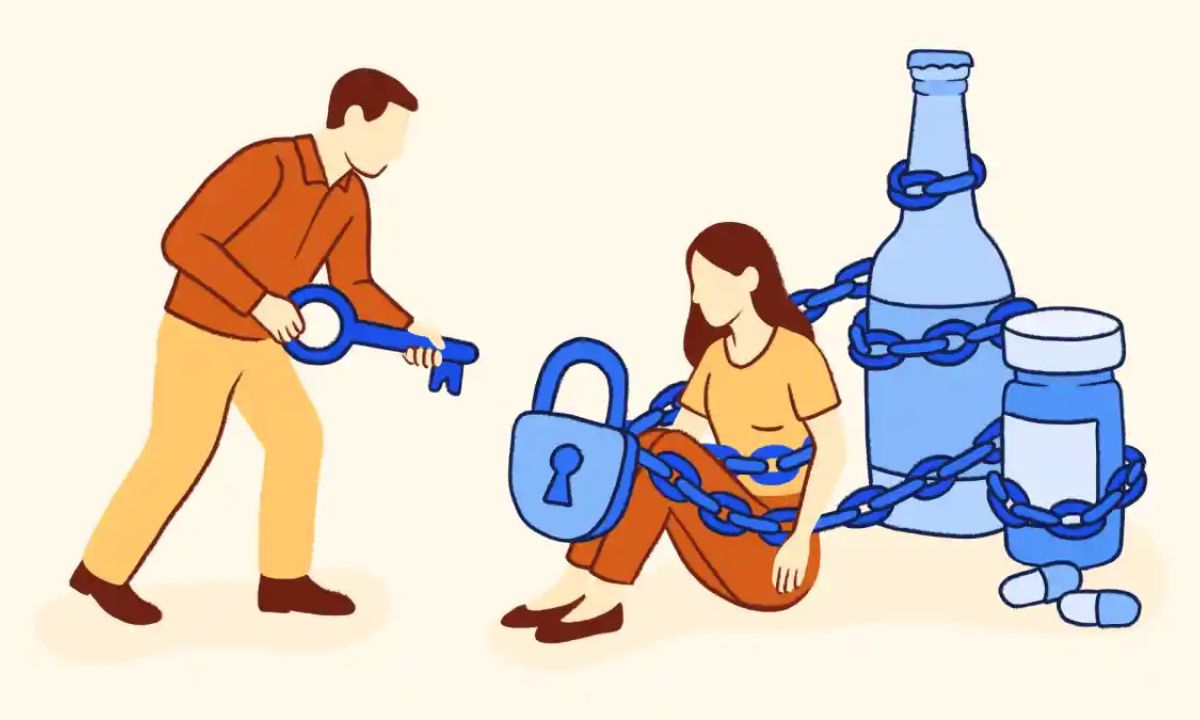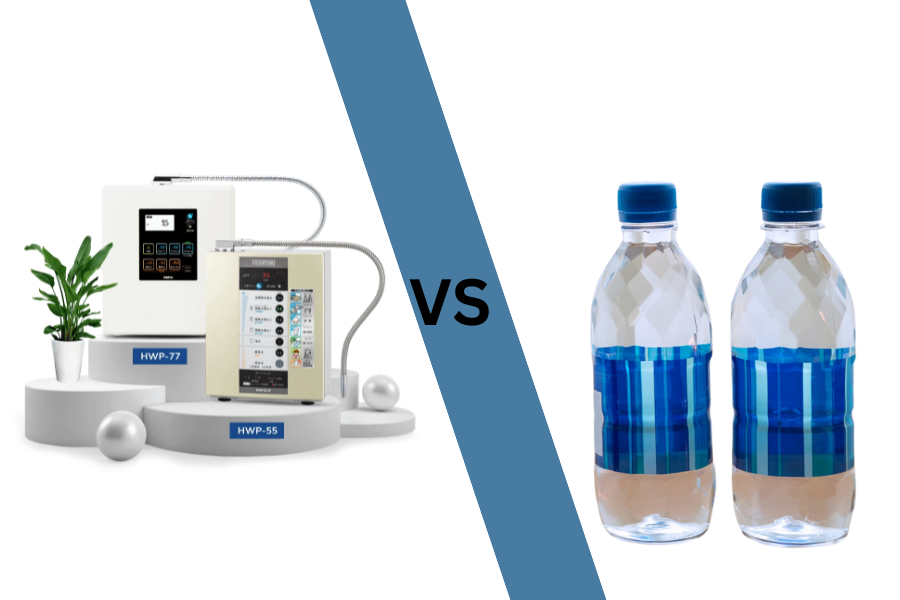When someone you love struggles with addiction, a deep urge to help takes over. You want to fix things, to make the pain stop. This strong desire, though, can often lead to your own emotional exhaustion. It’s a tough line to walk, balancing your care with the need to protect yourself from personal burnout.
This article explores a way to help that might seem strange at first: healthy detachment. It doesn’t mean you stop caring. Instead, it’s about setting clear boundaries. These limits protect your well-being while still letting you offer real support. Learning this balance is key for everyone involved.
Understanding Addiction and Its Impact on Loved Ones
Addiction impacts more than just the person struggling. It ripples out, affecting everyone close to them. Family and friends often carry heavy emotional and practical burdens. Recognizing these effects is the first step toward finding a healthier path.
What is Addiction? A Brain Disease Perspective
Addiction is a chronic brain disease. It changes how the brain works, especially areas tied to reward, motivation, and memory. These changes make it hard for a person to stop using drugs or alcohol, even when they want to. Seeing addiction as a disease helps remove some of the blame and stigma. It’s a condition that needs treatment, just like any other illness.
The Emotional Toll on Supporters
Supporting someone with addiction can feel like a roller coaster. You might feel guilty, thinking you didn’t do enough. Anger can flare up when promises are broken. Fear for their safety or future is constant. Frustration builds from repeated struggles, and helplessness can weigh you down. Imagine a parent always worrying if their child will make it home safe, or a partner living in fear of the next relapse. These feelings are normal, yet they can be crushing.
Actionable Tip: Write down your feelings in a journal. Or talk to a trusted friend or family member about what you’re going through. Sharing can lighten the load.
The Cycle of Enmeshment and Burnout
Sometimes, out of love, well-meaning actions can tie your life too closely to the addict’s problems. This is called enmeshment. Your days become consumed by their issues. You might spend all your time trying to control their behavior or clean up their messes. For example, a parent might repeatedly bail their adult child out of financial trouble caused by their drug use. This constant effort drains you. Without clear boundaries, this path often leads to total burnout, leaving you exhausted and unable to help anyone..
Practical Strategies for Healthy Detachment
Putting healthy detachment into practice takes effort. It requires a shift in how you think and act. These concrete steps can help you build stronger boundaries and a healthier approach.
Communication Without Condemnation
How you talk matters a lot. Try to use “I” statements when you share your feelings. For example, say, “I feel worried when you don’t come home,” instead of, “You always make me worry.” This expresses your concerns without blaming the other person. It opens the door for a real talk.
Actionable Tip: Practice being assertive. Say what you need clearly and calmly, without being aggressive or passive.
Financial and Emotional Boundaries
Money often gets mixed up in addiction. It’s important to set clear financial limits. Do not fund their addiction, even if they promise to use the money for something else. You might offer to pay for a therapy session, but not their rent if they are using it for drugs. Emotional boundaries are just as crucial. You can care about their feelings, but you don’t have to carry their emotional load. It’s okay to say, “I can’t fix this for you, but I can listen.”
Real-world Example: A sibling might refuse to pay off their addict brother’s gambling debts. Instead, they offer to help him research job openings or find an Alcoholics Anonymous meeting. This offers support without enabling.
Knowing When and How to Seek Help for Yourself
No one can go through this alone. It’s vital to know your own limits. Recognize when you need to reach out for outside help. There are many resources for people who support someone with addiction. These groups and professionals understand your unique challenges.
Actionable Tip: Look into support groups like Al-Anon or Nar-Anon. These groups are for family members and friends of addicts. Consider talking to a therapist who specializes in addiction or family dynamics.
Recognizing Enabling Behavior and Shifting Your Approach
Enabling behaviors can sometimes feel like acts of love. But in truth, they make it easier for the addiction to continue. Learning to spot these patterns is the first step toward a healthier way of supporting your loved one.
Identifying Enabling Behaviors
Enabling can take many forms. You might lie to protect the addict from trouble. You could make excuses for their behavior to others. Shielding them from natural consequences, like losing a job or facing legal issues, is also enabling. Constantly rescuing them from problems they create is another common sign. Studies show over 80% of families with addiction report at least one enabling behavior. These actions, though meant to help, often delay the addict’s journey to recovery.
The Power of Allowing Natural Consequences
It’s incredibly hard to watch someone you care about suffer. But allowing the addict to face the natural consequences of their choices can be a powerful motivator for change. When you stop shielding them, they might feel the full weight of their actions. This discomfort can push them to seek help. It might mean they face legal issues, lose a job, or simply have to deal with the discomfort of their own actions.
Actionable Tip: When you set a boundary, stick to it. This can be tough, especially when they try to convince you to give in. But staying firm teaches them you mean what you say.
Shifting from Rescue to Support
There’s a big difference between rescuing someone and truly supporting them. Rescuing means jumping in to fix problems for them. Support, on the other hand, means standing by them, offering encouragement, and helping them find their own solutions. If your loved one makes a mess, instead of cleaning it yourself, offer to help them find resources to clean it up. Or offer to help them look for a job after they lose one due to addiction. This empowers them to take responsibility.
Building a Support System for Yourself
You are not alone in this journey. People supporting an addict need their own network of care and understanding. Having a strong support system helps you stay healthy and gives you the strength to keep going.
Connecting with Others Who Understand
Connecting with people who have similar experiences can be a huge comfort. Support groups, whether in person or online, offer a safe space to share your story. You can learn from others’ experiences and get new insights. Knowing you’re not the only one facing these challenges can reduce feelings of isolation.
Actionable Tip: Search for local Al-Anon or Nar-Anon meetings in your area. Many online groups and forums also exist for family members of addicts.
Professional Support for the Supporter
Individual therapy can be very helpful for navigating the complex feelings that come with loving an addict. A therapist can help you process your emotions, set healthy boundaries, and develop coping strategies. Therapists often highlight that individual therapy helps loved ones process grief and trauma tied to addiction. It’s a space just for you to heal and grow.
Reclaiming Your Life and Interests
When addiction takes hold of a family, it can feel like it takes over your life too. You might stop doing things you enjoy or neglect old friendships. It’s crucial to reclaim your own life. Start by re-engaging with hobbies, finding new interests, and reconnecting with friends. Your well-being is vital.
Actionable Tip: Schedule specific time for enjoyable activities. Reach out to friends you haven’t seen in a while and plan a simple get-together.
The Long Road to Recovery: Patience, Hope, and Realistic Expectations
Addiction recovery is rarely a straight line. It has many ups and downs. As a supporter, managing your expectations is key to staying strong and offering consistent support.
Understanding the Relapse Process
Relapse is often a part of the recovery journey, not a sign of failure. It means the person needs more support or a change in their treatment plan. About 40% to 60% of people in recovery from substance use disorder will experience a relapse. Knowing this helps you react more constructively if it happens. You can approach it with understanding rather than anger or despair.
Fostering Hope While Maintaining Realism
Hold onto hope for your loved one’s recovery. It’s an important part of staying positive. But also keep realistic expectations. Recovery is a long-term process. It often comes with setbacks. Celebrate small victories, like a week of sobriety or attending a support meeting. These small steps are important progress.
Actionable Tip: Focus on celebrating even minor successes in their recovery journey. Acknowledge their effort and progress, no matter how small.
Your Role: A Consistent, Healthy Presence
Being a healthy, detached supporter makes you a more consistent and positive influence. An enmeshed and exhausted person might mean well, but they often can’t provide steady support. By setting boundaries, you can be a loving, stable presence when your loved one actively seeks help. For example, a parent might set clear rules but remain a steady source of love and encouragement when their child truly commits to recovery. Your strength becomes their foundation.
Conclusion
Loving someone with addiction is one of life’s hardest challenges. But you can care deeply without losing yourself in the process. Remember these key takeaways:
Self-Preservation is Essential: Protecting your own physical and emotional health is not selfish; it is absolutely necessary. You cannot pour from an empty cup.
Boundaries Empower, Not Alienate: Setting clear, well-communicated boundaries are tools for respectful engagement. They define healthy limits, not push people away. These limits can truly empower both you and your loved one.
Support is a Marathon, Not a Sprint: Helping someone through addiction is a long journey. It demands sustainable strategies. Seeking support for yourself is a powerful sign of strength, ensuring you have the energy for the road ahead.
You can love deeply and offer effective support without sacrificing your own well-being. Your strength, found through healthy detachment, can be a lasting beacon of hope for everyone involved.
ALSO READ: Guiding a Loved One Toward Sobriety: Practical Ways to Help











